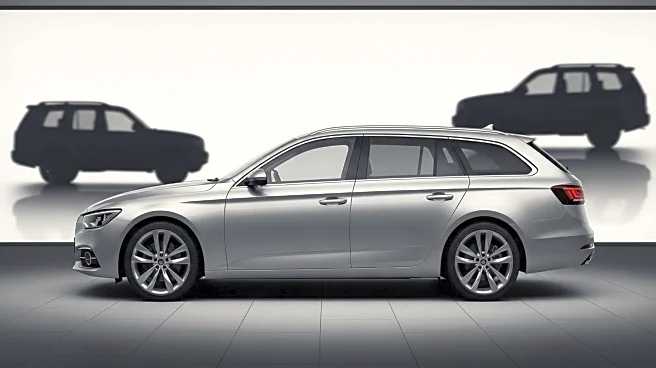What's Happening?
Volvo has announced the discontinuation of its luxury wagon, the V90, marking the end of an era for the model. The decision comes as the company shifts focus towards SUVs, which have gained significant popularity among consumers. Volvo CEO Jim Rowan confirmed that the last V90 will be assembled in September, with no direct successor planned. This move reflects a broader trend in the automotive industry, where wagons are losing favor to SUVs due to their perceived advantages such as higher ride height and easier cargo loading. Despite the V90's demise, Volvo will continue to produce the smaller V60 wagon for the foreseeable future, although its future remains uncertain.
Why It's Important?
The discontinuation of the V90 highlights a significant shift in consumer preferences within the automotive industry, particularly in the U.S. market. SUVs have become increasingly popular due to their versatility and perceived safety benefits, leading manufacturers like Volvo to adjust their product offerings accordingly. This shift could impact the sales strategies of other automakers, especially those that still produce wagons. The move may also influence the design and marketing of future vehicle models, as companies strive to meet consumer demand for SUVs. Additionally, the decision could affect the competitive landscape, benefiting brands that continue to offer wagons, such as BMW, Audi, and Mercedes.
What's Next?
Volvo plans to fill the gap left by the V90 with its SUV lineup, potentially repositioning models like the XC60 to attract former wagon buyers. The company is also focusing on expanding its electric vehicle offerings, with the introduction of the fully electric ES90 sedan in select markets. As Volvo transitions away from wagons, it will likely continue to innovate within the SUV segment, possibly introducing new hybrid and electric models to meet evolving consumer demands. Other automakers may respond by reinforcing their wagon offerings or further investing in SUV development to capture market share.
Beyond the Headlines
The shift from wagons to SUVs raises questions about environmental impact, as SUVs typically consume more fuel and produce higher emissions compared to wagons. This trend may prompt discussions on sustainable automotive practices and the role of electric vehicles in reducing the industry's carbon footprint. Additionally, the cultural implications of this shift could influence consumer perceptions of vehicle safety and practicality, potentially altering long-standing beliefs about vehicle types.









